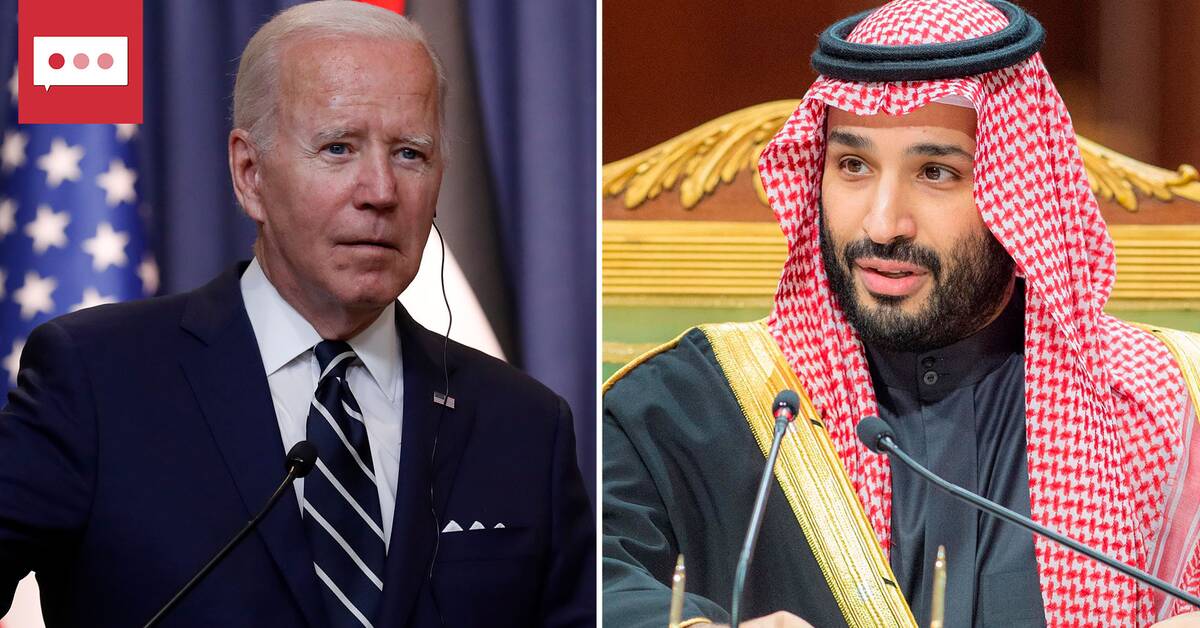Joe Biden has had a series of difficult meetings during his ongoing trip to the Middle East.
Earlier this week, he met, among others, Israel's former Prime Minister Benjamin Netanyahu in Tel Aviv, and today he will meet with Palestinian Authority President Mahmoud Abbas in the West Bank.
But it is towards the planned meeting between Biden and Saudi Arabia's Crown Prince Mohammed bin Salman that the world's eyes are now focused.
After Saudi Arabia announced on Thursday that it would open airspace to "all air traffic", including Israeli planes, Biden is scheduled to make the historic flight directly from Israel to the Kingdom of Saudi Arabia on Friday.
- All eyes are on whether Biden will embrace, or at least take in hand or otherwise greet, Mohammed bin Salman.
The same person he called pariah during his election campaign, says Anders Persson, political scientist and Middle East expert at Linnaeus University.
Wants to increase oil production
According to Anders Persson, Joe Biden has several purposes for the trip:
- The first is to create some form of normalization again in the relationship between the United States and Saudi Arabia, which has been quite frozen since the assassination of regime critic Jamal Khashoggi four years ago, he says.
The second is, according to Anders Persson, to bring about a normalization of the relationship between Saudi Arabia and Israel, which is a continuation of Donald Trump's policy in the region.
- The third and fourth is to strengthen Biden's position at home by getting Saudi Arabia to increase its oil production in order to, hopefully, be able to push down the price and overcome the rampant inflation in the western world, he says.
"Real-political triumph"
But it is not without difficulties that the president is trying to establish control over the world-politically sensitive oil region.
Joe Biden has been criticized from several quarters for his attempts to invite Saudi Arabia into the heat.
- He explains it by saying that it is needed politically to meet the challenges that the outside world and the United States are facing right now.
So this journey is really a triumph of realpolitik over human rights and international law, says Anders Persson.

